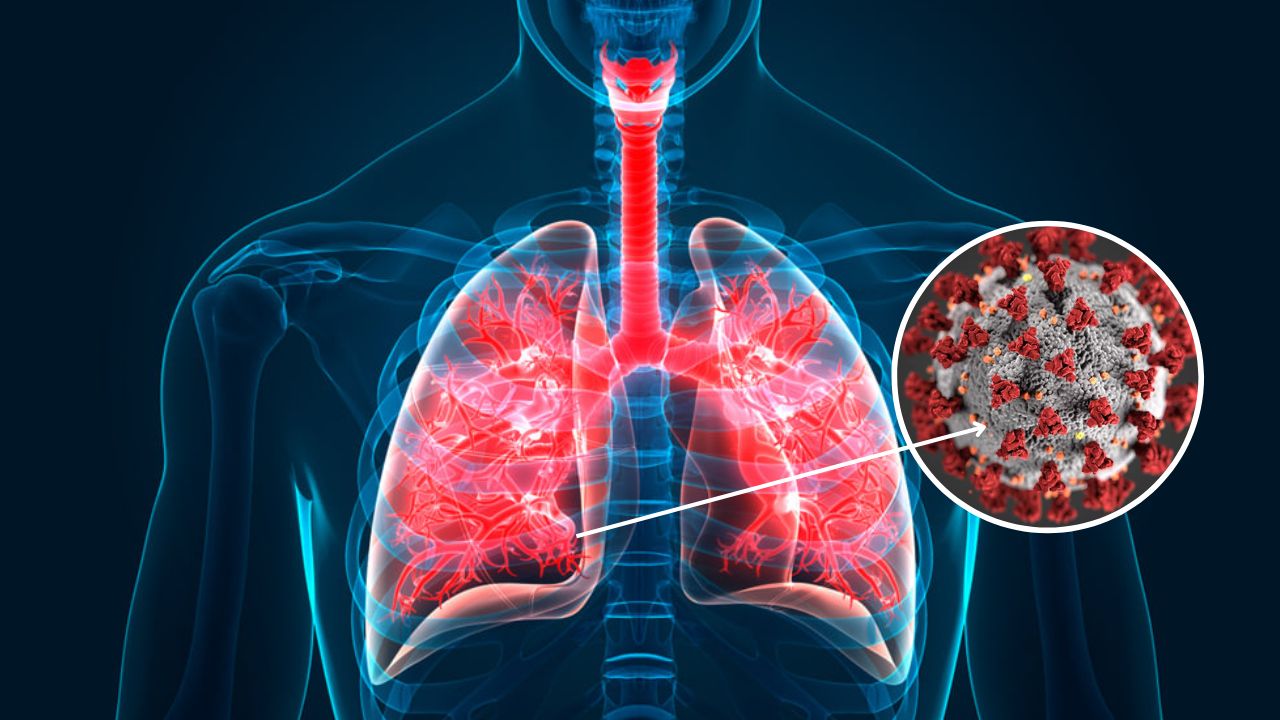Health
COVID-19 Can Remain Undetected in Lungs for 18 Months: Study
This could be a clue as to why so many people experience long COVID.

This article originally appeared on The Epoch Times and was republished with permission.
Guest post by Amie Dahnke
The COVID-19 virus can remain in the lungs for months after an individual has been infected—even though it may be undetected by over-the-counter (OTC) tests, a new study finds.
The findings, established by a research team from the Institut Pasteur in France and published in Nature Immunology, indicate that the virus can live in the lungs for up to 18 months after infection in what scientists call “viral reservoirs.”
The research team discovered these so-called viral reservoirs by analyzing samples from non-human primate models infected with the SARS-CoV-2 virus, which causes COVID-19. Preliminary results of the study showed the virus was found in the lungs of some animal models six to 18 months after infection, even though the virus went undetected in the blood or upper respiratory tract, such as the nose, throat, or voice box.
The researchers believe these viral reservoirs act almost like dormant geysers that could erupt at any time, especially when activated by some type of stimulus. Whether the virus reactivates may also depend on an individual’s innate immunity, the immunity someone is born with.
To understand how innate immunity works against viral reservoirs, the Institut Pasteur team studied how macrophages and natural killer cells worked against the COVID-19 virus, looking for clues in the formation of viral reservoirs.
Macrophages and natural killer cells are types of white blood cells. While a natural killer cell is responsible for destroying infected or diseased cells, macrophages are responsible for removing dying or dead cells and cellular debris. When it comes to COVID-19, macrophages are responsible for the majority of the work in the lungs, the research team indicated, as they comprise 7o percent of the white blood cell count in the lungs.
Also called lymphocytes, natural killer cells are a major building block of a person’s innate immunity system. In some individuals in the study, natural killer cells could adapt and control the viral reservoirs; in essence, the cells worked to dry up the reservoir. Researchers noted as natural killer cells increased in the blood, the viral load declined. The natural killer cells could not adapt in other cases, enabling the reservoir to swell. Therefore, the lower the natural killer cell count, the more likely an individual is to have persistent COVID-19 virus or experience a relapse in symptoms, researchers reasoned.
A Clue About Long COVID
Discovery of the viral reservoirs could be a clue as to why some individuals experience long COVID, Michaela Müller-Trutwin, head of the Institut Pasteur’s HIV, Inflammation and Persistence Unit, noted in a press release.
Before the publication of the Institut Pasteur study, researchers believed that the reactivation of a dormant COVID-19 virus caused long COVID. The concept of viral reservoirs confirms this previous research. Furthermore, the new research confirms previous thought that long COVID could be caused by overactive immune cells releasing high levels of inflammatory substances into the body.
A January 2023 KFF poll showed that 28 percent of individuals who previously had COVID-19 reported having long COVID. The percentage declined from the first time KFF polled Americans in June 2022, during which 35 percent of Americans with COVID reported having long COVID.
-

 Health1 day ago
Health1 day ago22 State Attorney Generals Oppose WHO Pandemic Treaty, Citing Threats to Sovereignty and Civil Liberties
-

 Featured2 days ago
Featured2 days agoBiden Administration Risks Gain-of-Function Research of ‘Bird Flu’ Amid Fears of Human Transmission
-

 Health3 days ago
Health3 days agoOBGYN Doctor Calls on Attorneys to Sue Institutions That Forced COVID Shots on Babies & Pregnant Women
-

 Health2 days ago
Health2 days agoDr. Deborah Birx Now Says Thousands of Americans Injured by COVID Vaccine

















